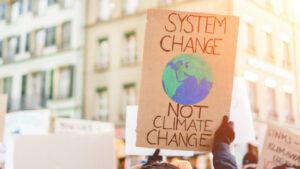When you look across all 17 of the UN Sustainable Development Goals (SDGs), the majority are focused on society: improving life, and living conditions for everyone, particularly those in the developing world and areas that are very poor.
The investment industry has adopted the SDGs as a measure by which investors are helped to determine the good that a fund is doing – companies too are adopting them for the same purpose. But trying to reconcile an investment case with the social aims and ambitions of the SDGs quite challenging.
Perhaps, not surprisingly, the investment industry focusses on those areas that are easier to measure, but this misses the wider picture. Broadly when the investment industry talks about the ‘S’ in ESG it thinks about gender equality, diversity, women’s representation on boards, workers conditions, whether a company pays a living wage; all of these are relevant and important, but can the investment industry help address the much bigger issues the SDGs are focused on?
The success of the SDGs is contingent on them all being achieved; environmental issues globally cannot be resolved on their own, they have to be resolved in conjunction with social issues and vice versa.
The goals are therefore dependent on each other, and this is illustrated with the concept of planetary boundaries: the concept of an ecological ceiling for ocean acidification, pollution and biodiversity, for example.
Perhaps less well known is the concept of the planetary boundaries model with an inner ring, a social foundation that sets a minimum requirement for human beings: good housing, healthcare, clean water, access to education, income and justice, for example.
And we need this to raise everybody up to the point where we all live in a fair and just world. It is about improving the lives of people everywhere and in doing this the model points out we have to simultaneously reduce the impact we’re having on the natural world.
Education
A simple but thorny subject is population growth. The UN forecasts the global population may rise to 10bn by 2100, which is a 30% increase on today and places ever greater pressure on the planet. The education of girls can be a positive factor in managing population growth. With education and opportunities to work and a decent and fair life, they have a choice, and that choice can help relieve population pressure.
Businesses on the ground in the developing world can help provide education, healthcare, equal opportunities, fair pay and promote gender equality. There are a lot of areas that need to be addressed and, of course, although some companies are already engaged, it is not directly accretive to the profits of the business, but there is growing evidence that an educated, healthy and fairly paid workforce is going to be more productive and stable than one that isn’t.
This approach would allow companies to align with the SDG goals in a much broader manner, around quality education, good health and wellbeing, no poverty, decent work, and gender equality. In turn fund managers can inform investors by highlighting this in their reports.
Energy charter treaty
Another very different example I recently came across where investors could help bring change is in respect of the energy charter treaty (ECT).
The ECT is a charter with 55 member countries that allows companies to sue governments for compensation for the early closure of coal, oil, and gas plants – it’s estimated that governments are on the hook for 1.3trn (Euro) until 2050. The charter is a clear impediment to transitioning the economy away from fossil fuels to renewables.
A group of people who have been impacted by floods, forest fires and hurricanes are bringing a case to the European Court of Human Rights. Although this action is brought in the developed world it centres on the impact climate change has on society and individuals, seeking to redress the balance and apportion responsibility for it.
Those campaigning are arguing that the fossil fuel industry is more protected than human rights. Investors can engage companies in this sector about the charter: are they suing? Would they sue?
The damage caused by climate change is very human and degrading to society and is headed only one way. The heat wave India experienced recently has impacted the harvest and livestock, and the government has placed a ban on exports of cereal crops.
Food shortages are a social issue, causing poverty, a loss of earnings, and increased subsistence living. In 2006/7 there were civil disturbances in Mexico known as the ‘Tortilla Riots’ when the price of corn flat breads rose by over 400%.
As always, those impacted most are the less well off – so enabling them to live more resilient and healthy lives lifting them up to at least a minimum standard of human wellbeing is essential if we are to solve environmental and social issues.
Investors need to ask bigger and broader questions of companies and fund managers when it comes to social issues, to think outside the confines of company structures, and ask about how they are engaging with society at all levels wherever they operate.
Without that, it’s hard to see the SDGs being achieved.








